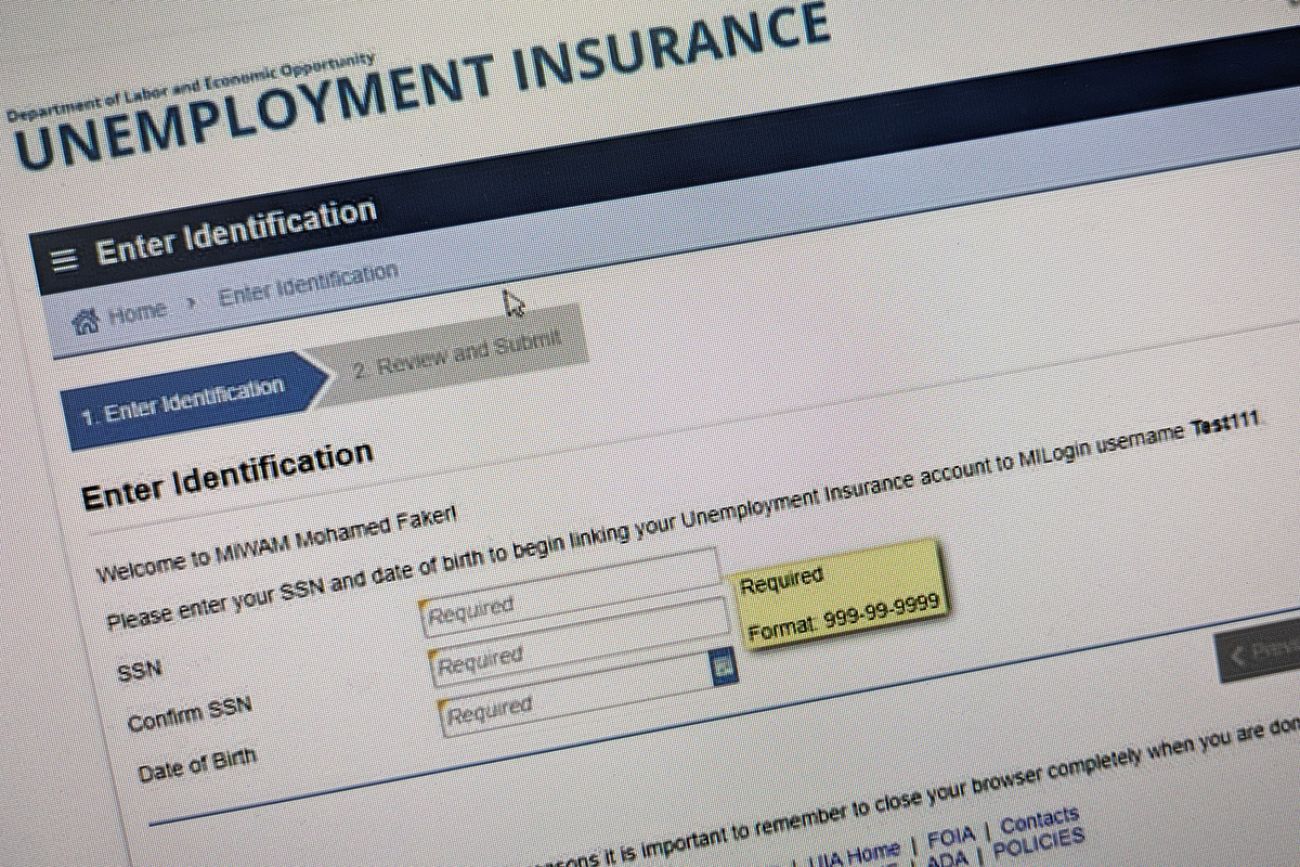Michiganders falsely accused of jobless fraud to share in $20M settlement

- Michigan judge approves $20 million settlement for jobless claimants falsely accused of fraud between 2013 and 2015
- The state used an automated computer system to review claims and compounded errors by assessing steep fines and penalties
- Members of the class action lawsuit are expected to receive settlement checks within the first quarter of 2024
LANSING — More than 3,000 Michiganders falsely accused of unemployment fraud are in line for a share of a $20 million settlement finalized this week in the state Court of Claims.
The final order from Judge Douglas Shapiro caps a nearly nine-year legal battle that twice reached the Michigan Supreme Court.
And it closes a "sad chapter in Michigan history" that began more than a decade ago when an automated computer system started falsely accusing jobless residents of fraud, said Michael Pitt, an attorney for plaintiffs.
Related:
- Michigan unemployment office to spend $78M to replace ‘antiquated’ syste
- Michigan unemployment system designed to slow payments working all too well
- Broken: The human toll of Michigan's unemployment fraud saga
"When it comes to judging human conduct and behavior, algorithms are incredibly stupid," Pitt told Bridge Michigan, calling the case a prescient warning about the danger of over-reliance on artificial intelligence.
"The sooner we realize that machines should not control our lives, the better off we will be."
Lead plaintiffs Grant Bauserman and Teddy Broe were among tens of thousands of Michigan residents automatically accused of accepting improper payments between 2013 and 2015 by the Michigan Integrated Data Automated System, a $52 million computer known as MiDAS.
The state later acknowledged it had failed to have a human double-check the computer’s conclusions and had compounded that error by automatically assessing large fines and penalties to jobless claimants.
Michigan Attorney General Dana Nessel agreed to settle the case in October of 2022, calling the $20 million agreement "fair compensation" for suffering caused by the false accusations.
Fifteen months later, after ironing out payment details and attorney fees, Shapiro on Monday gave final approval to the settlement, ruling the deal is "in the best interest" of the approximately 3,200 people who joined the class action lawsuit.
Those individuals are expected to begin receiving settlement checks within the next few months, with amounts varying based on factors approved by the court.
All members of the class action lawsuit will receive "more than 100 percent of their losses," Pitt told Bridge. "Those who experienced a traumatic life event because of the false accusation of fraud will receive substantial additional compensation.”
The false fraud scandal unfolded under former Gov. Rick Snyder, but the state's Unemployment Insurance Agency has continued to face scrutiny under Gov. Gretchen Whitmer, after paying billions to actual fraudsters during COVID-19 pandemic.
Most recently, a December audit found the agency made more than $245 million in "potentially improper payments" to people who were dead, incarcerated or living in a nursing home -- making them ineligible because they were not able to work.
UIA Director Julia Dale, who took over the agency in late 2021, announced the following year that the state would spend $78 million to replace the troubled MiDAS computer system.
The lawsuit, officially settled this week, "pointed out the limitations of our existing computer system, which was implemented in 2010 and does not meet the expectations or needs of today’s users," Dale said in a Tuesday statement.
The replacement system should be "fully functional" by 2025, she added, promising a user-friendly design, intuitive operation and plain language that will "allow for quick updates" on unemployment claims.
See what new members are saying about why they donated to Bridge Michigan:
- “In order for this information to be accurate and unbiased it must be underwritten by its readers, not by special interests.” - Larry S.
- “Not many other media sources report on the topics Bridge does.” - Susan B.
- “Your journalism is outstanding and rare these days.” - Mark S.
If you want to ensure the future of nonpartisan, nonprofit Michigan journalism, please become a member today. You, too, will be asked why you donated and maybe we'll feature your quote next time!




